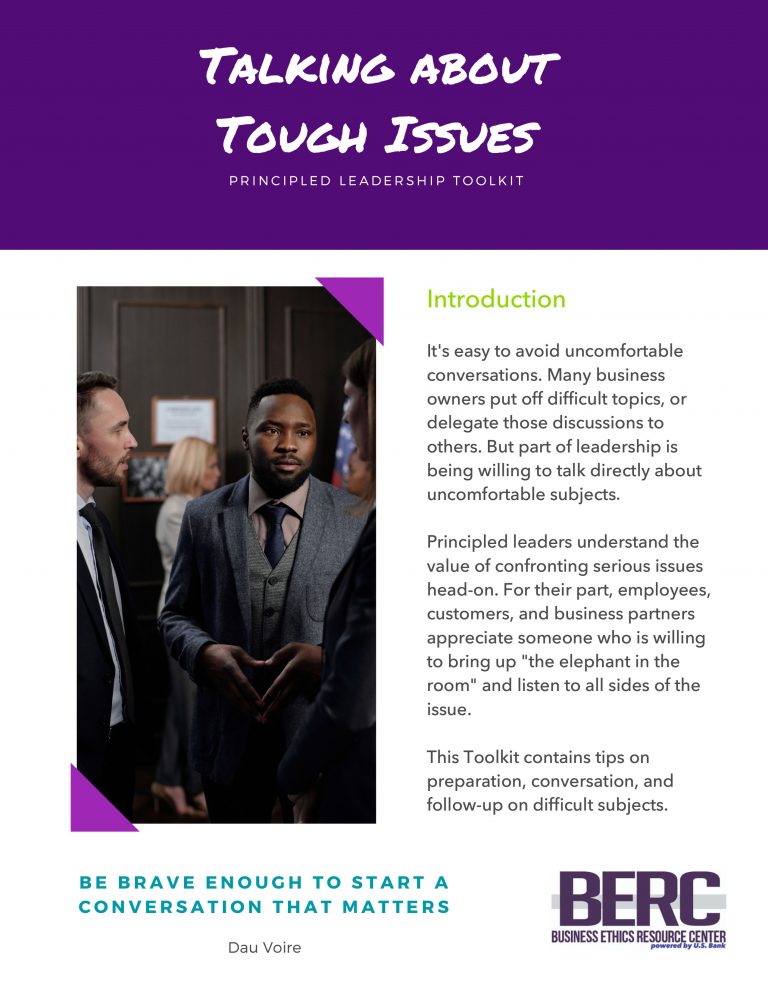Having an ethical environment is a cornerstone to success, but it’s not always easy to get there. Here are 3 things to keep in mind as you build out your plan.

As chief ethics officer for U.S. Bank, I’m proud our company has been recognized by the Ethisphere Institute as one of the World’s Most Ethical Companies for the fifth year in a row. This honor reflects the focus and hard work we put into earning the trust of our customers, employees, shareholders and communities.
Regardless of how large or small a company is, what it does or where it is, building a culture of ethics truly is hard work, and it’s work that never stops. For any organization, I believe success lies in striving to live up to your core values.
No company will always get it right. Companies act through their people, and people are fallible. We have bad days. We have lapses in judgment. We have blind spots and biases. To me, the true measure of a company isn’t whether it’s ever had issues or not. It’s how it responds to those issues – and ethical companies respond with accountability, transparency and humility.
There are three things every organization can do to cultivate an ethical environment:
1. Articulate your company’s values
A strong set of values gives everyone a north star. While we need to have solid policies and procedures in place in our increasingly complex business world, we can’t anticipate every situation an employee might encounter. A common set of values. guides employees to make better decisions when the rules aren’t clear or when there aren’t any rules.
2. Develop your managers
Managing people isn’t easy. Yet we often promote people into management not because of their managerial skills, but because they were successful individual contributors. Managers are vital to the ethical health of our organizations, and they set the tone through their words and actions. Make it a priority to give them the training, tools and resources they need to lead their teams with transparency, candor and humility.
Managers who express gratitude and listen attentively to employees who share bad news will build trust. If managers are dismissive, defensive or even angry, employees aren’t likely to speak up again.
3. Listen to employees
Employees are the first to know when something isn’t right. By ensuring they have a voice, we get the benefit of their front-line knowledge and experience.
Make sure you have multiple channels for employees to report concerns. Train managers to listen effectively. Implement an ethics hotline. Use feedback loops, such as focus groups, anonymous surveys, one-on-one interviews or other methods.
Creating ways for employees to be heard, and welcoming what they say, goes beyond heading off or mitigating ethics issues. It lets employees bring their authentic selves and unique perspectives to work every day. And, it’s essential to broader organizational goals around creating an inclusive culture and fostering innovation. When information moves quickly, companies are nimbler, more innovative and better able to address any issues that do arise.
Speak up, listen up and follow up, guided by your core values. It’s as simple – and as hard – as that to be an ethical company. Our work continues.
By: Katie Lawler, chief ethics officer, U.S. Bank
This article originally appeared on U.S. Bank’s Financial IQ site on February 27, 2019. Used by kind permission of U.S. Bank.


